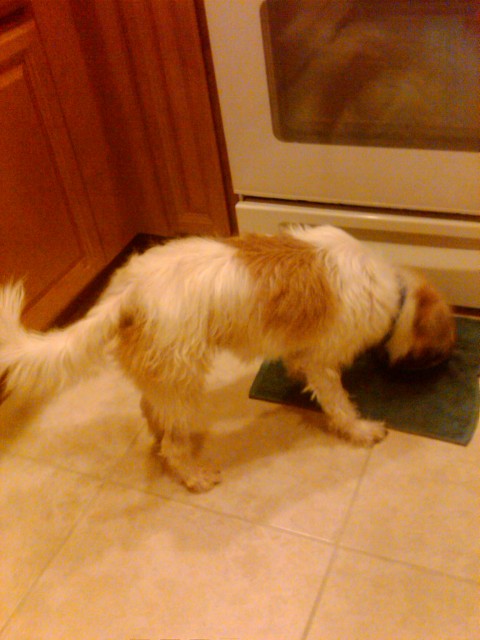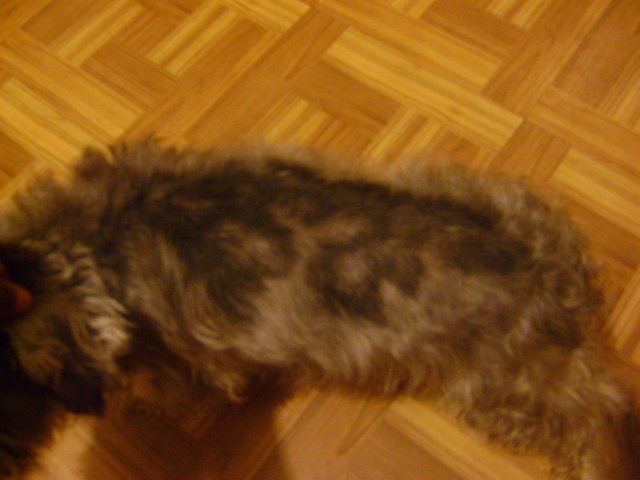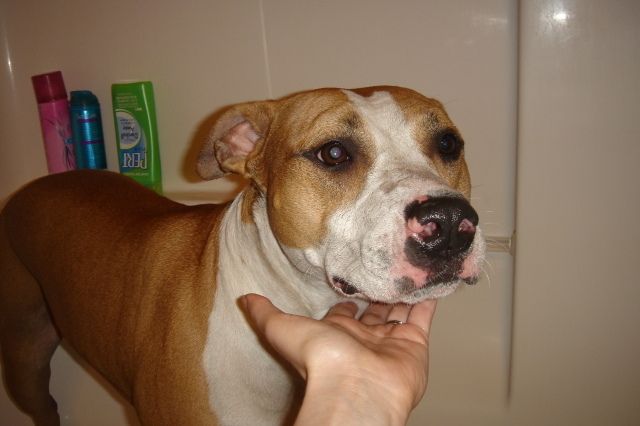QuestionI have a 15 year old female, spayed llaso apso/mixed breed that I rescued from the pound 5 years ago. She has been having more "accidents" the last year and a half, so I now keep her confined to the kitchen. At first, I chalked it up to my work schedule and her not being able to wait till I got home. However, I have been home the last month, let her out more frequently, and she'll still come in and urinate on the floor 10 minutes after I let her in. I took her to the vet and he prescribed a pill that could help with nighttime incontinence but this is more than that. Do you have any advice?
Answer
Hi Gina,
Older female dogs are prone to develop urinary incontinence and urinary tract infections. Both conditions would make holding her urine difficult, so if you haven't had your vet run a urinalysis to rule out a urinary tract infection, that's something which should be done.
You didn't say which medication your vet gave, or if it was helpful at all. The most common medication prescribed is Phenylpropanolamine (also known as Proin, Propalin, or PPA), increases sphincter tone and alleviates urinary incontinence by stimulation of the alpha adrenergic receptors in the urethral muscle. It take several days of PPA use before improvement in the symptoms of urinary incontinence begin to be noticed. You should report to your vet how the medication worked or didn't work. A change of medication or a simple dose adjustment may make a great deal of difference. Some dogs require estrogen replacement therapy in treatment for urinary incontinence.
A popular homeopathic remedy for incontinence is Corn silk. This product can be purchased at many health food stores and pharmacies. For Corn silk, the usual dose is (for a 30 lb. dog), start with 1/4 the human adult dose and adjust up or down over a week to find the dose which provides relief. Tell your vet if you're using any homeopathic remedies, as there can be interactions with prescription medications.
Unfortunately, if medication isn't helpful the next tier of treatment is more or less defensive: making clean-ups easier, using waterproof pads for sleeping, and letting your dog outside more frequently. Dog diapers are something else to consider, they are available from a number of companies, here's a couple of sites specializing in dog diapers:
http://www.diapersfordogs.com/femaledog.htm
http://www.poshpetglamourboutique.com/index.cfm/fa/items.main/parentcat/17607/su...
http://www.seniorpetproducts.com/catalog/dog-diapers-c251.html
You can also make your own dog diapers:
http://www.ehow.com/video_4951830_make-dog-diaper.html
Best of luck,
Patti

 pugs
Question
micah and lacy
my male and female are the same
pugs
Question
micah and lacy
my male and female are the same
 How do I groom my mixed breed terrier?
Question
Oliver
Hi Susan!
I recently rescued a wonderfu
How do I groom my mixed breed terrier?
Question
Oliver
Hi Susan!
I recently rescued a wonderfu
 Thining hair on back/back hair darkening
Question
Dogs Back
Please Help!
I have a 4 year miniatu
Thining hair on back/back hair darkening
Question
Dogs Back
Please Help!
I have a 4 year miniatu
 pomeranian
Question
the pomerainan
hey, i have a pom who is 3years
pomeranian
Question
the pomerainan
hey, i have a pom who is 3years
 Dog breed?
QuestionQUESTION: Hi Nancy,
I am attaching an image of
Dog breed?
QuestionQUESTION: Hi Nancy,
I am attaching an image of